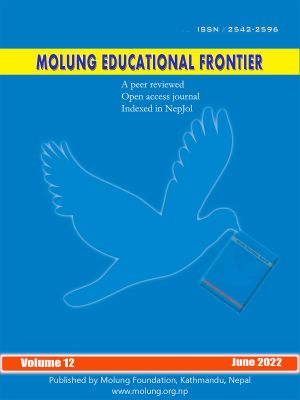Policy Implementation Challenges of Special/Inclusive Education in Nepal
DOI:
https://doi.org/10.3126/mef.v12i01.45924Keywords:
nepal, policy theory, challenges, implementation, special educationAbstract
This study critically analyzed Nepal's policy implementation challenges of special/inclusive education. Using qualitative data collected through document analysis, interviews, and focus group discussions, this study is based on the premises of qualitative research design under the interpretative paradigm followed by critical interpretive design to analyze and interpret the field data. For this, 15 (fifteen) policy experts from the Ministry of Education, Science, and Technology, Department of Education, university professors, and 11 (eleven) head teachers from 6 (six) special and 5 (five) integrated schools, and special education council members and members of disabled related organizations were purposively selected as the informants. Furthermore, inadequate human resources, lack of necessary budgetary provision, and low level of awareness are the major challenges of special education in Nepal. There is a lack of a separate special education policy in the foundation period, and the responsibility and authority of relevant stakeholders are not explicitly stated. At the practice level, the researcher found a gap in the inductive action plans for implementation across the central, provincial, and local levels of government of Nepal. It was also found that there was no coordination among the Ministry of Education and other line ministries for the implementation of existing policy and provisions. This study implies that coherent policy-making is required through consultation with the relevant stakeholders from the central, provincial, and local levels so that there is a minimum gap in power-sharing among agencies at different levels of governance. Such attempts will ease the implementation of macro policies into the micro contexts.
Downloads
Downloads
Published
How to Cite
Issue
Section
License
© Molung Foundation




